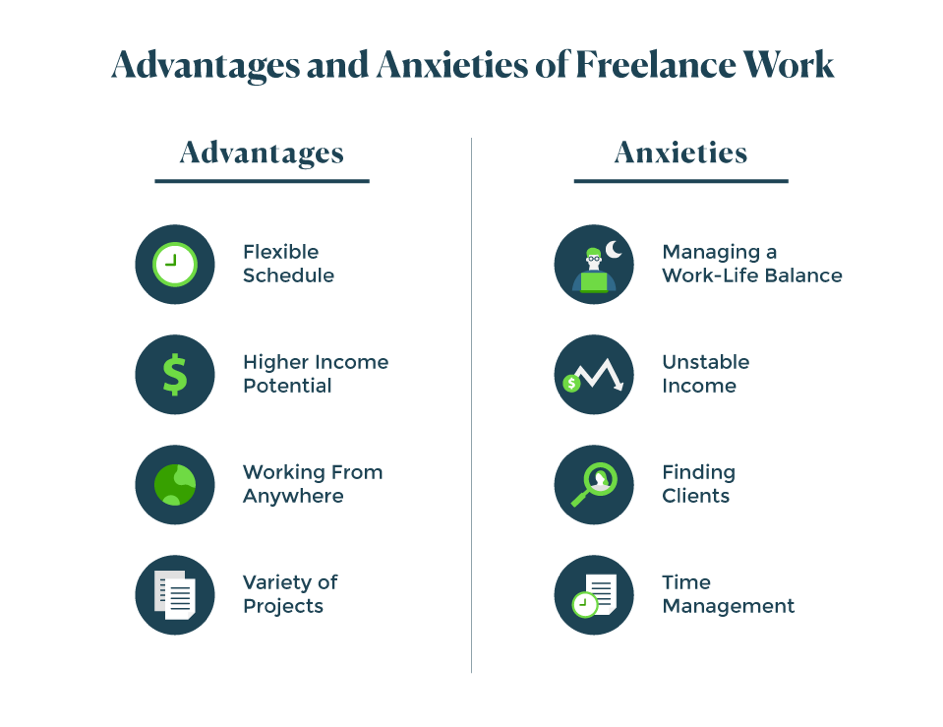Freelancing has become increasingly popular in the tech industry as more professionals seek flexibility and control over their careers. While freelancing offers a variety of benefits, there are also drawbacks to consider. In this article, we will explore the pros and cons of freelancing in the tech niche.
The Pros of Freelancing
1. Flexibility
One of the biggest advantages of freelancing is the flexibility it offers. Freelancers have the ability to choose their own hours and work location, allowing them to create a schedule that suits their lifestyle. This flexibility can be particularly appealing to tech professionals who may prefer to work during non-traditional hours or from the comfort of their own home.
2. Control over Projects
Freelancers have the freedom to select the projects they want to work on, giving them control over their career path. This level of autonomy allows tech professionals to focus on projects that align with their interests and expertise, leading to more job satisfaction.
3. Potential for Higher Earnings
Freelancers have the potential to earn a higher income compared to traditional full-time employees. By working on multiple projects simultaneously and charging higher rates, tech freelancers can increase their earning potential. Additionally, freelancers have the opportunity to negotiate their rates and take on high-paying clients.
4. Diverse Work Experience
Freelancing offers tech professionals the opportunity to work on a variety of projects with different clients. This diverse work experience can help freelancers build a strong portfolio, develop new skills, and expand their network. Tech freelancers can gain valuable insights into different industries and technologies, making them more marketable in the long run.
The Cons of Freelancing
1. Inconsistent Income
One of the major drawbacks of freelancing is the inconsistent income. Freelancers may experience fluctuations in their earnings due to factors such as project delays, client cancellations, or seasonal demand. Tech professionals who rely solely on freelancing may find it challenging to predict their monthly income or secure long-term projects.
2. Lack of Job Security
Freelancers do not have the same job security as full-time employees. They are not guaranteed a steady stream of work and may face periods of unemployment between projects. Tech professionals who choose to freelance must be prepared for the uncertainty that comes with not having a stable job or benefits package.
3. Administrative Responsibilities
Freelancers are responsible for managing their own business operations, including invoicing, taxes, and marketing. Tech professionals who freelance must devote time and effort to administrative tasks that are typically handled by employers, such as managing finances, negotiating contracts, and marketing their services. This additional workload can be overwhelming for freelancers who are not accustomed to running a small business.
4. Isolation
Freelancing can be a solitary profession, as freelancers often work independently without the support of colleagues or a physical office environment. Tech professionals who work as freelancers may miss out on the social interactions and collaborative opportunities that come with working in a traditional office setting. Freelancers must make an effort to stay connected with industry peers, attend networking events, and participate in online communities to combat feelings of isolation.
Conclusion
Freelancing in the tech niche offers a range of benefits, including flexibility, control over projects, potential for higher earnings, and diverse work experience. However, freelancing also comes with drawbacks such as inconsistent income, lack of job security, administrative responsibilities, and feelings of isolation. Tech professionals considering freelancing should carefully weigh the pros and cons before making the leap to ensure they are prepared for the challenges and opportunities that come with this career path.
